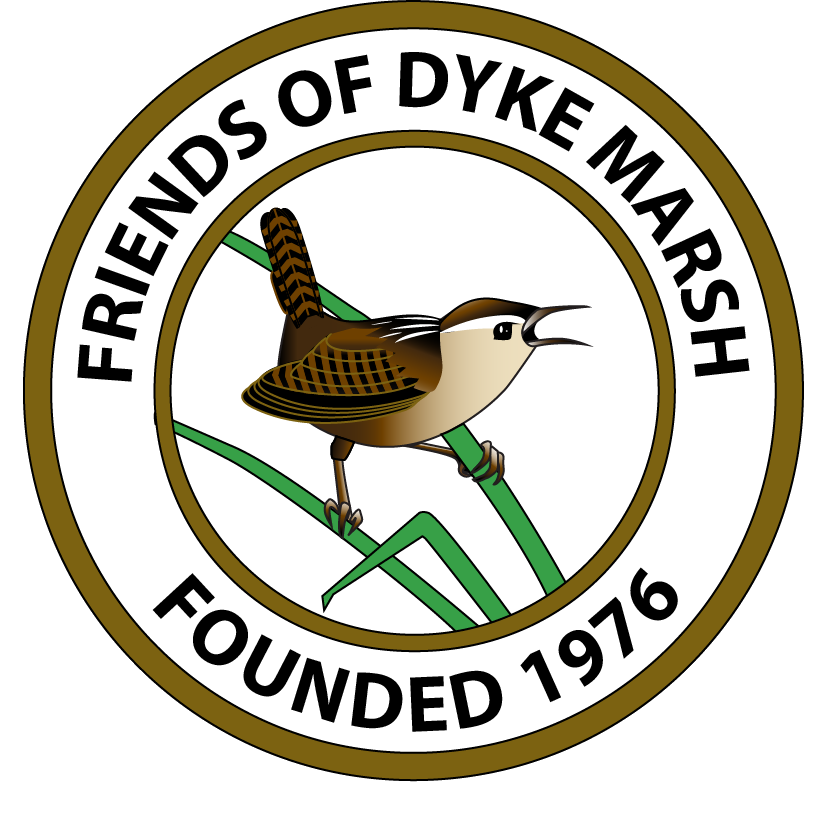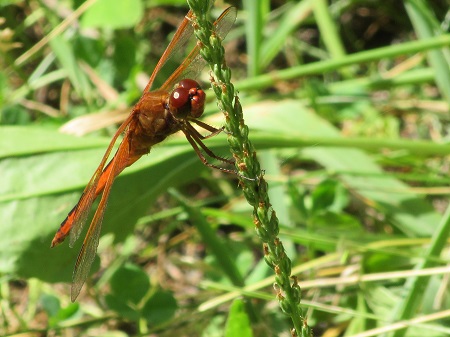On a beautiful, 82-degree, breezy July 7, 2018, 15 FODMers studied butterflies, dragonflies and damselflies and their host plants in the Dyke Marsh Wildlife Preserve and Belle Haven Park.
It was a Needham’s skimmer (Libellula needhami) day. These showy dragonflies were whizzing around everywhere and eating midges, making for easy sightings. The males are bright reddish-orange and have a red face. The females are yellow and black. Both sexes and all ages have a black line on their abdomens and orange-tinted wings.
There are some nice photographs here with details taken by Kevin Munroe, a dragonfly expert and former manager of Huntley Meadows Park. About this species, he wrote, “They like wetlands with lots of plants and water just a few inches deep.”
In addition, big bluet damselflies (Enallagma durum) were fighting for territory. Black saddlebags dragonflies (Tramea lacerata) were flying in tandem, mating. Prince baskettails (Epitheca princeps) were cruising over the water.
Other sightings: Blue-fronted dancer damselfly (Argia apicalis), familiar bluet damselflies (Enallagma civile) and Eastern pondhawk dragonfly (Erythemis simplicicollis).
The group saw four butterfly species: Eastern-tailed blue (Everes comyntas), spring azure (Celastrin ladon), pearl crescent (Phyciodes tharos) and monarch (Danaus plexippus). It was especially heartening to see the monarch in our new native plant area, proving our point! The butterfly count was likely lower than usual because of steady wind gusts.
The leaders, FODMers Ed Eder and Jessica Strother, pointed out host plants in the preserve. For example, sassafras trees are host plants to the spicebush swallowtail butterfly and the tulip tree/yellow poplar, to the Eastern tiger swallowtail butterfly.
FODM’s volunteer surveys are now in the third year.
Photos contributed by Glenda Booth.
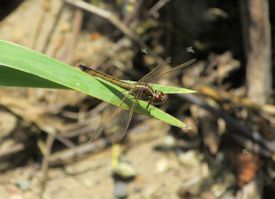 Needham’s skimmer dragonfly (Libellula needhami), female, yellow and black. Needham’s skimmer dragonfly (Libellula needhami), female, yellow and black. |
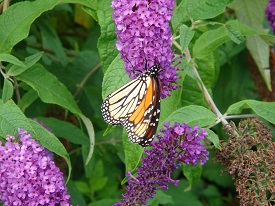 Monarch butterfly (Danaus plexippus). Note: This photo was taken at the Coastal Maine Botanic Garden. Monarch butterfly (Danaus plexippus). Note: This photo was taken at the Coastal Maine Botanic Garden. |
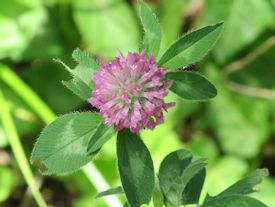 Clover (Trifolium L.) is a host plant for some butterfly species. Clover (Trifolium L.) is a host plant for some butterfly species. |
